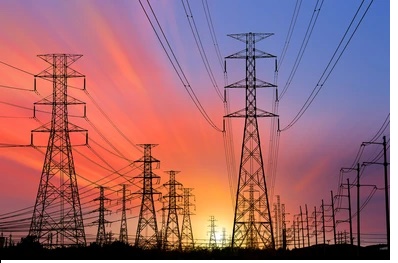# Power outage in March, says state minister
# Power outage at Iftar-Taraweeh
# Fear of big load shedding in March
# Country's demand is about 17,000 MW
The amount of gas needed for power generation is not available
- Mohammad Hossain, DG, Power Cell
Mismanagement of the power sector is responsible for the crisis
- Ijaz Hussain, Energy Specialist
The energy and power sector is in again severe crisis. Due to instability in the world market and dollar crisis, the necessary logistics for power generation are not being imported. Meanwhile, LNG imports have been reduced by half.
According to the energy division, the government used to import 20 percent of the total fuel gas. Gas supply has been reduced by 10 percent as an FSRU is on regular servicing. The FSRU in service will not arrive before March 30.There is some crisis in this. Production has fallen by about 100 million cubic feet from what we owned.
In such a situation, the amount of load shedding is likely to be larger. According to the concerned ministry, there will be a major power shortage before the arrival of summer. In our country, Baishakh-Jaishtha is considered as summer. As such, summer is still one month away, but it's starting from now. Demand for electricity has increased. As a result, load shedding has started again at the district and upazila levels. The residents of the capital have also been able to sense load shedding.
Meanwhile, on the first day of Ramadan, there was load shedding in different parts of the country. Even during Iftar and Taraweeh there is load shedding. The highest load shedding was in Mymensingh division. As the heat increases, so does load shedding.
The concerned people said that due to the energy crisis, it is not possible to produce the full demand of electricity. Besides, the irrigation season is going on. Due to this, the demand for electricity has increased. Oil-based plants are being run during Iftar and Taraweeh during Ramadan, when there is peak demand. Even then, load shedding is happening at these two times. Gas crisis has been reported in many areas of the capital since the beginning of Ramadan.
Analyzing the load shedding data of the last six days, it was found that load shedding is increasing day by day. The load shedding in the country was 83 MW on March 7, 93 MW on March 8, 96 MW on March 9, 80 MW on March 10, 149 MW on March 11 and 90 MW on March 12. Load shedding is more in rural areas than in the capital. In some areas, there is load shedding for more than 9 hours in the day and night.
According to PDB sources, the potential demand for electricity in Ramadan has been estimated at 16,000 to 17,800 MW. The demand for electricity will remain till next September. At this time, the daily demand for gas in gas-based power plants has been estimated at least 154 crore cubic feet.
Petrobangla Chairman Zanendra Nath Sarkar said, "An LNG terminal is closed for maintenance. It may be launched in the last week of this month. Then the gas supply will increase. At that time, there is a plan to provide 110 to 120 crore cubic feet of gas in the power sector. Apart from this, supply will also increase in other sectors."
Rampal, Payra and Adani's coal-fired power plants in India are the government's major reliances to meet the demand for irrigation and electricity in the summer season. Apart from this, the government hopes to get electricity from S Alam Power Plant in Chattogram and Barisal Power Plant in Barguna in May-June. The government has set a target of generating 2,865 MW of electricity in May-June with coal without Adani. Of this, 325 MW will come from Barapukuria. It will be 2,540 MW from imported coal. Apart from this, Adani's Kodda power plant is expected to get 750 MW of electricity per day from March 26.
But the government is unable to import coal and LNG as it does not have the necessary dollars. As a result, no preparations are being made to deal with the upcoming summer load shedding.
Power Cell Director General Mohammad Hossain said transmission and fuel constraints are responsible for load shedding in different parts of the country. Furnace oil-based power plants are being run at higher prices due to energy constraints. Besides, the amount of gas needed for power generation is not available.
According to Power Division sources, there is no shortage of production capacity to meet the power demand. However, there is a shortage in the supply of coal, LNG and fuel oil for power generation. In the last two years, customers have suffered from heavy load shedding in the summer season due to not getting fuel as per the demand.
This year, the maximum power demand in the summer season has been estimated at about 18,000 MW. Demand has increased by 11 percent from last year. At the same time, power generation capacity has also increased at the same rate. However, like last year, a large part of the capacity may have to be installed due to lack of fuel.
Energy expert Ijaz Hossain said many unplanned power plants have been built one after another. There is no proper management of fuel resources. Mismanagement of the power sector is responsible for the ongoing crisis.
ZH






